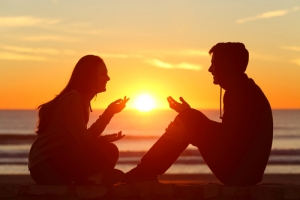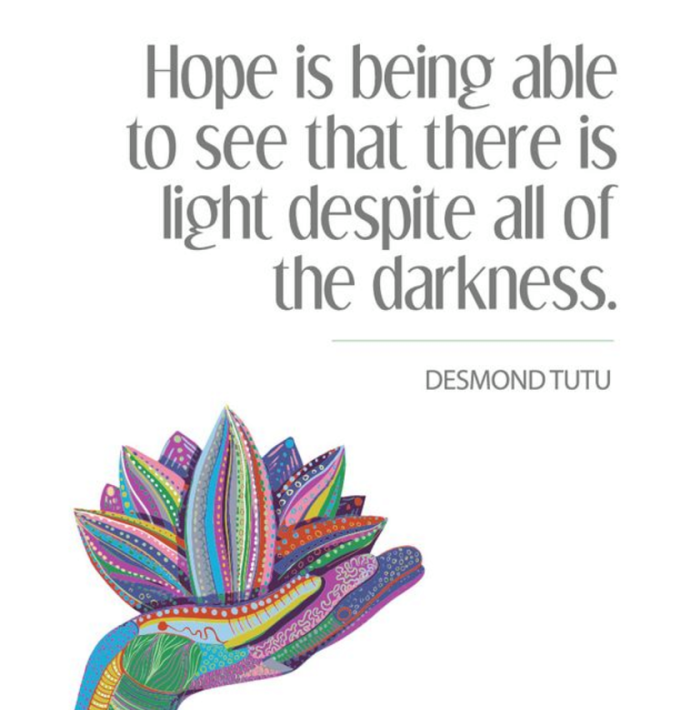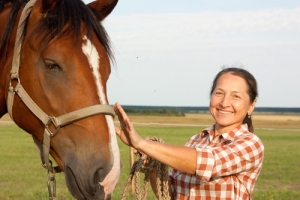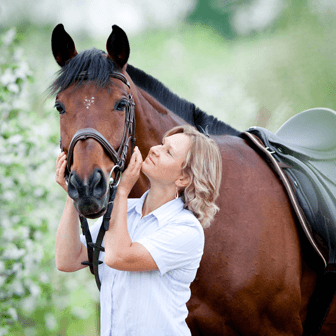Corrine
and Joe have been married for seven years. This marriage is the second
one for both of them. They elected to attend Couples Boot Camp to
“improve our communication and resolve ongoing arguments about the
amount of time we spend together.”

While
each of them proclaims their love for the other, they also have
different expectations about what coupleship looks like in terms of
quality personal time vs. family time, and the issues are causing a rift
that invites bickering and further withdrawal.
Consider this: Your partner’s behavior isn’t what drives you crazy. Your own brain is.
What you learned about relationships
likely came from interactions, dysfunction, and traumas you experienced
in your family of origin. You may often hear the strident voice of your
immature brain reminding you of the less-than-ideal things you may have
learned about the way adult couples are supposed to treat as you
navigate your relationship with your partner. Rob complains that
Jennifer is so reticent and depressed that he has lost hope that he can
be enough for her. He is weary of being the cheerleader and counselor to
her. Jennifer admits she has low self-esteem and counters that Rob’s
constant nagging and criticism have worn her down. Both come from family
backgrounds of addiction and emotional abuse. They aren’t sure they can
remain together; however, both recognize that their unresolved issues
will likely carry over to any future partners. They state that Boot Camp
may be their last resort to stay together.
At
this workshop, participants learn that they are not so much addressing
their partner’s behavior as they are reacting to unaddressed family of
origin wounds. When they stop projecting their past relational
disappointments onto their spouse or partner, the path becomes clear for
a more rewarding, intimate coupleship. Boot Camp process includes
exploring family of origin roles and dysfunctional messages that
individuals carry into their committed relationships.
Marilee
and Jason have been together since high school. They acknowledge that
they argue and “fight like we are still 16 years old.” As their 29th
anniversary draws near, they wonder if they have simply outgrown each
other or will they be able to redefine the relationship from a new
perspective as life-long partners. They value the comfort and joy their
children and grandchildren give them but dread the thought of spending
the rest of their lives unhappily married to each other. Their objective
at Boot Camp is to find a way to restart the marriage as mid-life
adults.

This workshop
curriculum invites exploration of skewed relationship thinking and
offers respectful solution-finding to unresolved and/or repetitive
relational issues. Couples find that this supportive environment is a
safe place to examine difficulties within their relationship. Because
the participants reduce areas of shame and open up previously-closed
dialog, they learn through guided processes to problem-solve together
and mediate agreeable solutions. Among other communication tools,
healthy boundaries and limit-setting are introduced as effective
strategies for bringing couples to a higher level of trust and intimacy.
“Aha!” moments are not uncommon throughout this week.
Workshops
are held for two to three couples at a time. The benefits of positive
and supportive feedback from the group peers are plentiful. Among them:
-
couples realize that they are not alone in their relational issues; others have the same problems;
-
hearing viewpoints of several different facets can shed light on a previously murky solution;
-
genuine, positive regard among all the participants can bring healing in unexpected ways for other areas of wounding.
If you are open to learning more about yourself, your beloved, and the life path you both share, Couples Boot Camp may serve as the relationship experience you seek. For more information or to enroll in a Couples Bootcamp call the Intake Department at 1-866-986-3225.






